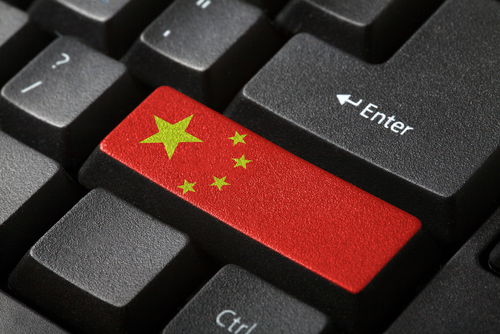China, Canada Sign Latest Pact Barring Economic Hacking

The deal follows a similar arrangement with the UK and is thought to signal a shift in Beijing’s approach to acquiring high-tech know-how
China and Canada have reached an agreement to cease state-sponsored cyber-attacks targeting private-sector trade secrets, in a deal that mirrors those with the UK and the US, and which experts say may indicate a change in Beijing’s tactics.
The deal was concluded during talks in Canadian capital Ottowa between Wang Yongqing, a senior Communist Party official, and Daniel Jean, the national security adviser to prime minister Justin Trudeau.
Anti-hacking deal
“The two sides agreed that neither country’s government would conduct or knowingly support cyber-enabled theft of intellectual property, including trade secrets or other confidential business information, with the intent of providing competitive advantages to companies or commercial sectors,” the two governments said in an official announcement published late on Friday in Canada.
China’s official Xinhua news agency released a statement about the meeting with similar wording.
![]() The deal covers economic espionage only, and doesn’t extend to state-sponsored infiltration of government or military systems. It accompanies ongoing free-trade talks between the two countries.
The deal covers economic espionage only, and doesn’t extend to state-sponsored infiltration of government or military systems. It accompanies ongoing free-trade talks between the two countries.
“This is something that three or four years ago (China) would not even have entertained in the conversation,” an unnamed senior government official told the Globe and Mail.
Arrangements with US, UK
China has reached similar agreements with the UK, the US, Australia, Bazil and Russia in recent months.
In September 2015 China and the US formed a pact against economic hacking, following a number of high-profile thefts of industrial secrets that the US had blamed on China. The deal was preceded by talks in June of the same year in which then-US president Barack Obama made it clear the country wanted an explicit anti-hacking commitment.
In October 2015 Chinese president Xi Jinping and then-British prime minister David Cameron jointly announced a comparable agreement during a state visit by Xi to the UK in which the countries also announced a £325 million partnership targeting the creative and technology industries.
UK companies continue to be targeted by aggressive cyber-attacks from China-based hackers, but the groups responsible for the most recent attacks aren’t thought to be backed by the government.
![]() The shift has accompanied an economic thaw between the UK and China in recent years that followed a period when Chinese technology giants such as Huawei said they found it difficult to do business with the British government due to their country of origin.
The shift has accompanied an economic thaw between the UK and China in recent years that followed a period when Chinese technology giants such as Huawei said they found it difficult to do business with the British government due to their country of origin.
Change in tactics?
Security firms including FireEye have said that the number of Chinese state-sponsored attacks on US companies appear to have dropped significantly since the two countries’ agreement, but industry observers have said this may only signal a change in China’s methods.
US national security experts have argued China is likely to be using cyber-attack techniques that are more difficult to detect.
“The Chinese may be becoming more stealthy and sophisticated in their attacks,” wrote security expert Adam Segal in a recent issue of US magazine Foreign Affairs. “FireEye noted that the decline in number of attacks may be accompanied by a rise in the sophistication of attacks.”
The country may also be shifting away from digital theft toward the acquisition of technologies via corporate buyouts, some have argued.
The current Canadian administration, for instance, has approved the sale of Montreal’s ITF Technologies, a maker of military-grade laser technology, and Vancouver’s Norsat International, which makes satellite communications equipment for NATO, the US military and Canadian security forces.
The sale of Norsat had been blocked by the previous administration on the grounds it would undermine the technological edge of Western militaries, and its go-ahead was criticised by members of the US House of Representatives armed services committee.
Do you know all about security in 2017? Try our quiz!